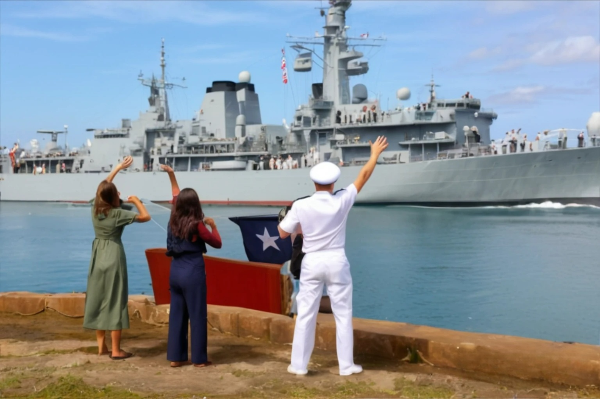Iran’s Plan to Strike Back Against the U.S.
Iran’s Military Preparations Following U.S. Attacks
Loading...

The Rim of the Pacific exercises include over 25,000 personnel from 29 countries and will extend until August.
In Hawaii, United States, amidst heightened tensions and increasing competition between China and the United States and its allies, the US Pacific Fleet is hosting Rim of the Pacific (RIMPAC), described as the world’s largest international maritime exercise.
Taking place biennially, this year’s RIMPAC brings together armed forces from 29 countries for five weeks of training aimed at strengthening multilateral relations and enhancing preparedness to support a “free and open Indo-Pacific”.
Established in 1971 by Australia, Canada, and the US, the current drills began on June 27 and include participation from South Korea, Japan, India, Southeast Asian nations, South Asia, Latin America, and seven European countries.
Israel's third participation has sparked protests due to ongoing conflicts, although the nation will not contribute aircraft or ships. Military leaders emphasize RIMPAC's role in enhancing interoperability and readiness for diverse global operations, spanning land, air, sea, cyber, and space domains.
This year's exercise unfolds against a backdrop of escalated regional tensions. The US has bolstered alliances and military capabilities across the Asia Pacific, while China intensifies exercises near Taiwan and disputes in the South China Sea. Russia's increased presence in the region also adds to the geopolitical complexity.
RIMPAC 2024 features a robust tactical phase, extensive humanitarian operations, and integrated multi-domain warfare training, reflecting strategic responses amid evolving security challenges.
Despite its cooperative aims, RIMPAC faces criticism from environmental and cultural groups, highlighting concerns over military impacts on local ecosystems and communities.
Iran’s Military Preparations Following U.S. Attacks
Troops remain in five strategic locations, raising fears of renewed tensions and long-term occupation.
Opposition forces have taken control of the capital after a significant offensive. Here is how it unravelled.
